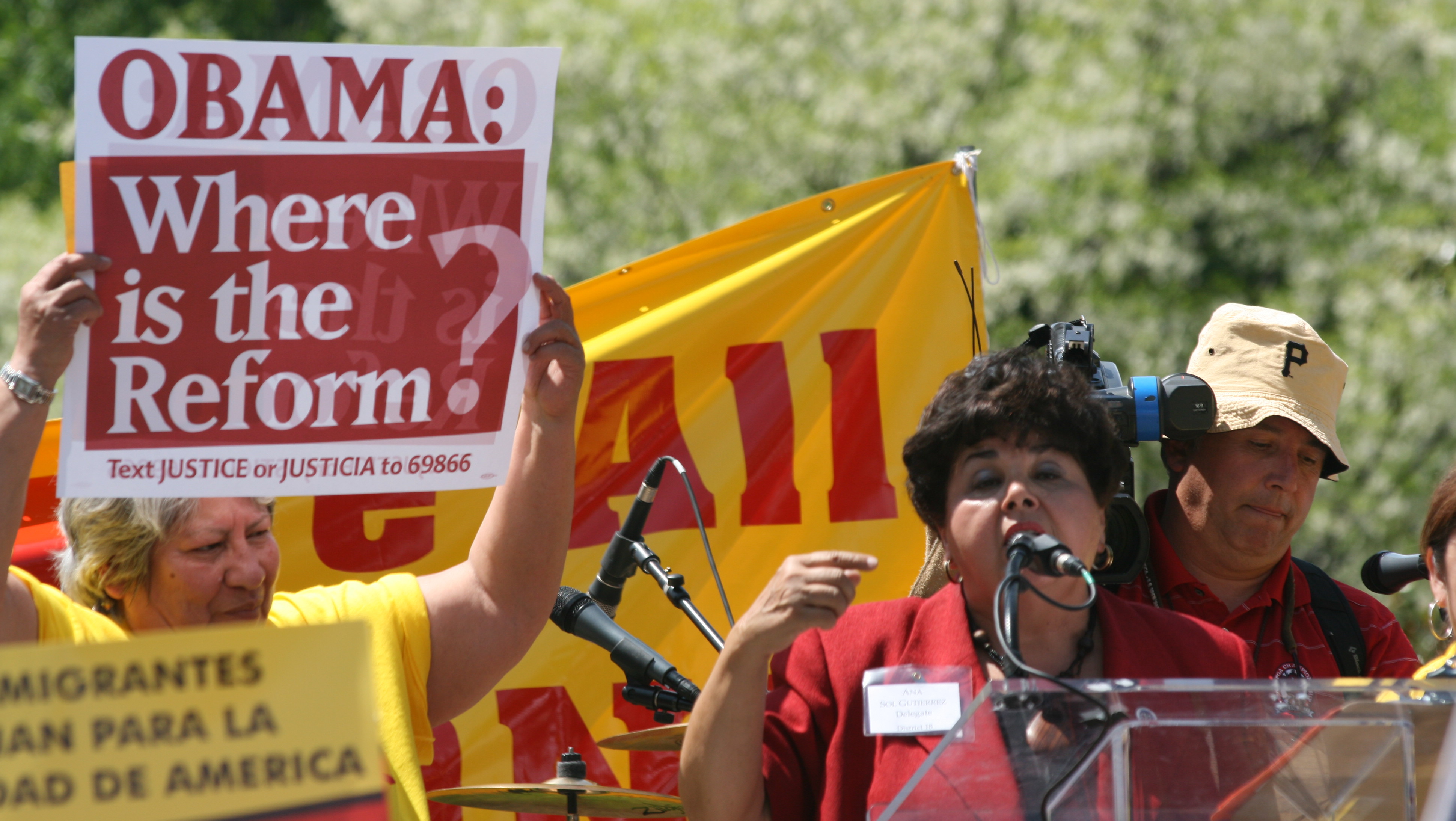“First letter of Cuba, is an open letter [sic] / Born in Miami, right on time / Scarface, El Mariel, Cuban crime [sic] / Here’s the freedom we ride for, here’s the freedom we die for / C-u-b-a hope to see you free one day.” So states Pitbull in his “Open Letter” about Cuba in response to Jay-Z and Beyonce’s wedding anniversary trip last year. Pitbull, a Cuban-American, has never been hesitant to voice his opinion on US-Cuba relations. As the midterm elections approach, the political power of the increasing number of immigrants and Americans with Latino heritage has become evident. Celebrities such as Pitbull, Jennifer Lopez and Eva Longoria play spokesperson to critical issues, like immigration, that frame and reflect Latin@ concerns through campaigns, social media and songs.
The Center for American Progress estimates an increase of 4 million Latino voters by 2016, outpacing any other group in the United States. Texas, for example, will see a 58.1 percent Latino voter increase from the 2012 to the 2016 presidential election cycles, while Arizona will see a 71.4 percent increase. Numbers are approximate for the 2012 to 2014 midterm election cycle, with significant gains in other states such as New Mexico, California and Florida. Given that in 2012, 75 percent of Latino voters supported Obama and 77 percent supported Democratic House candidates, attention to this group’s increase in political power will be key to the 2014 midterm elections and the 2016 presidential race. In total, 35 percent expressed immigration as the most important issue, with the economy and jobs first at 53 percent. Although many Latinos in the United States are not yet of voting age, a big demographic shift is about to occur. In the 2012 presidential elections, 79 percent of 18-30 (Latino) voters voted for Obama and 81 percent for Democratic House candidates with immigration as the most important issue for 40 percent and the economy for 42 percent within this age group.
Politicians cannot ignore these voters’ concerns. As Jennifer Lopez — who made Time’s 25 Most Influential Hispanics and Forbes’ Celebrity 100 List — said, “We’re really growing as a community and we’ve come into a place where we deserve to be considered and served and catered to. There’s a big revolution going on, it’s like a media and cultural revolution of Latinos here in the United States. We’re realizing our power.” Not only economic power, but political power, which exists in contrast to negative Latino stereotypes. A University of Cincinnati study found Latinos rated most negatively compared to other groups along common racial and ethnic stereotypes.
Celebrities have a surprising impact upon young voters within the Latino constituency. Immigration is one rallying point for which celebrities have contributed their reputation, visibility and money. Eva Longoria (“I think the Republicans are going to realize, if they don’t do it because it’s morally imperative, they have to do it because it’s politically imperative”), Rosario Dawson (active in Voto Latino), America Ferrera and Wilmer Valderrama (“It’s a priority to really honor those people that have been here in this country working for this country, as well as providing and producing”) have all been vocal about their support for immigration reform and have backed Democrats and Obama in hopes of changing existing laws. George Lopez has been more critical, saying Obama “relied and used a lot of surrogates, a lot of Latinos were out there campaigning for him and helping him get the vote, but then he is the president who has deported the most people who are here illegally, of all nationalities not all Latinos.” Frank Sharry of the Washington, DC group America’s Voice said, “Celebrities have a big voice in American culture. A small but growing number of Latino and other performers are speaking up, even if what they say antagonizes some of their fans.”
On social media like Facebook and Twitter, Latino celebrities have more than 600 million followers, a testament to their social influence. Pitbull, vocal in his Cuban-American identity and support for immigration change, received flack from Marco Rubio, who tweeted, “@Pitbull makes party music not message music. Always been place for that in #HipHop. As he gets older he will have more 2 say about life.” Similarly, President Obama’s meeting with Eva Longoria, America Ferrera and other Latino celebrities received flak for the ‘value’ of Hollywood views on politics. The sudden involvement of not only a new constituency of voters, but also nontraditional representatives in the form of actors, singers and personalities, could understandably seem threatening to politicians, especially Republicans who were unsuccessful in wooing the majority of Latino voters.
Latino celebrities are fun to follow (see Pitbull’s Twitter feed) and produce great hits (Marc Anthony, JLo, Enrique Iglesias). Along with their social prominence and popularity comes political power that they are only beginning to tap as a group. As Latinos immigrate to, are born in and come of age in the United States, they are looking for role models who reflect their heritage and with whom they share beliefs. Latino voting power will be a significant iteration of this demographic shift.
